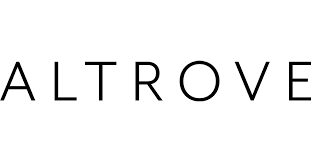In recent years, innovation in material development has been rapidly advancing. A new French startup, Altrove, is poised to be a significant player in this burgeoning field. The deep tech company has successfully raised €3.7 million (approximately $4 million) to fuel its mission. Altrove aims to harness artificial intelligence (AI) and lab automation to accelerate the creation of new materials, addressing the historical bottlenecks in material research and development (R&D).
Over the past five decades, R&D in new materials has faced numerous challenges. One of the critical hurdles has been predicting whether materials composed of specific elements can theoretically exist. The complexity increases exponentially with the number of elements involved, making traditional computational methods insufficient.
Teams from organizations like DeepMind, Microsoft, Meta, and Orbital Materials have developed AI models that significantly enhance the prediction of new stable materials. These advancements have led to the prediction of more stable materials in the last nine months than in the previous 49 years. However, predicting potential materials is only the first step. The real challenge lies certainly in developing the recipes to create these materials.
Recipe Development and Rare Earth Elements
Developing a recipe for new materials involves determining the proportions, temperatures, sequences, and durations necessary for combining elements. Altrove focuses on inorganic materials, particularly rare earth elements, which are challenging to source and often come with supply chain and regulatory uncertainties due to their predominance in China.
Altrove’s approach includes selecting promising candidates from predicted materials and using proprietary AI models to generate potential recipes. They then test these recipes one by one to produce tiny samples. The company employs a proprietary characterization technology using an X-ray diffractometer to analyze whether the produced material meets expectations.
Characterization, the process of understanding the properties and performance of the new material, is crucial. Altrove’s co-founder and CTO, Joonatan Laulainen, is a specialist in this field. The feedback from characterization is used to refine and improve the recipes, which is vital for developing usable materials.
Lab Automation for Enhanced Efficiency
To increase efficiency, Altrove aims to automate its lab processes. By automating testing and characterization, the company can conduct more experiments simultaneously, speeding up the iteration process. This high-throughput methodology enables rapid development and refinement of new materials.
Altrove positions itself as a hardware-enabled AI company, planning to license its newly created materials or produce them in collaboration with third-party partners. The startup has however drawn inspiration from biotech companies that use AI to discover new drugs and treatments, applying similar principles to material development.
The company’s recent funding round was led by Contrarian Ventures with participation from Emblem and several business angels, including notable figures from the tech and biotech industries. Altrove intends to build its automated lab by the end of the year and aims to market its first material asset within 18 months.


















